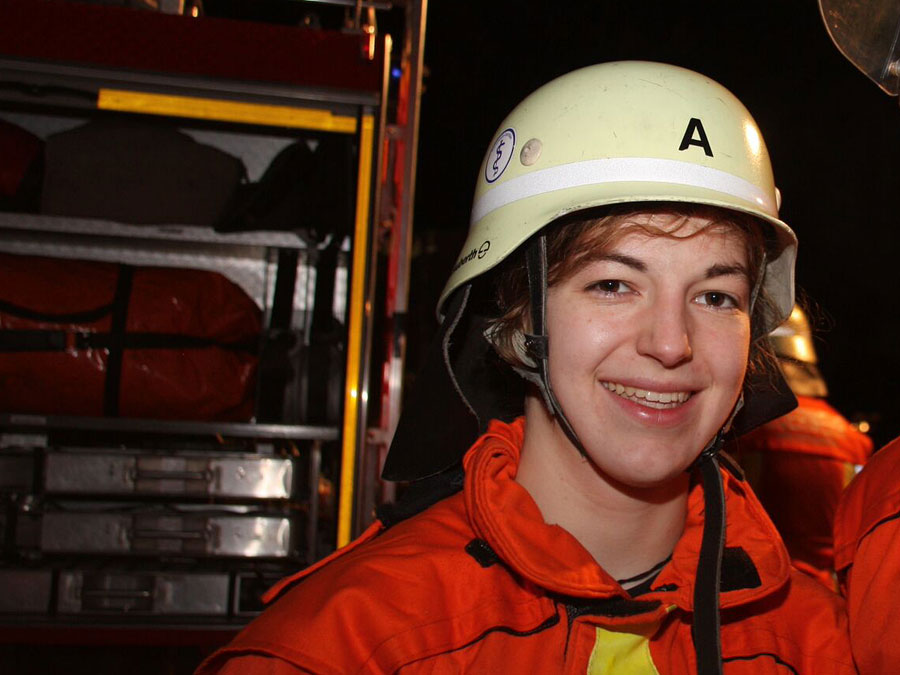Firefighter Jacqueline Wagner:
Enzymes and firehoses

In addition to Biochemistry, the volunteer work is one of her greatest passions. At the age of 14, Jacqueline Wagner joined the junior firefighters. First, she had to learn the basics: rolling up hoses and packing rope bags so that they are ready to be used again – possibly to save someone from drowning.
Sirens and sleep
Twice a month, there were training events in which Wagner got to know the vehicles, learned where everything is located in the fire trucks, how to set up a water supply, etc. “In a case of emergency, you need to know all that off by heart,” says the student. She can distinguish the sirens of fire trucks, ambulances and police cars in her sleep.
“The first fire run I took part in took us to an industrial bakery in Neufahrn, where the fire alarm had gone off. It turned out to be a false alarm: The driver of a forklift had smashed a sprinkler.”
Important: strong nerves
Jacqueline Wagner’s most difficult mission was an arsonist series back in 2013. “Everyone was full of adrenaline. It started off with burning cars. Then, one night, a duplex garage was on fire – immediately followed by another garage a few streets away, where the flames had already reached the house. The roof burned out completely. Finally, a barn burned down.”
All in all, the number of emergencies is on the decline – but sometimes, there are two or three a week, the firefighter reports. Strong nerves are very important for her voluntary commitment. She always has to expect fatal injuries, especially on the nearby motorway or on the tracks of the S-Bahn.
When it comes to animals, money is always an issue. If the fire department is sent out to find a parrot who managed to escape, using the long ladder can make quite an impression. In most of these cases, however, it is the municipality that has to pay, says Wagner.
Master’s studies and doctoral degrees
She is a member of the color guards, who represent the fire brigade at St. Florian’s or parades with festive uniforms and flags. In addition, the 23-year-old is also a fire paramedic, as her interest in Medicine is not limited to her studies.
She has a structured approach to that as well: “I want to finish my Master’s studies and obtain a doctoral degree,” says Jacqueline Wagner. After her Bachelor’s degree, it was not an option to look for a job immediately, as she was too happy with her studies. Her eyes light up when she talks about characterizing an enzyme for her Bachelor’s degree, on which she worked in the laboratory for eight weeks. Today, Jacqueline Wagner is aware that she will need half a year of practical work for her Master’s degree.
The Milky Way, consisting of plankton
Following her studies, she definitely wants to “make a difference in the world” – although she is not quite sure whether that will be in medical research or in a company. It will have to be exciting and meet her natural curiosity – just like her current secondary subject, industrial biocatalysis.
She won’t be bored: Recently, she started diving and had an unforgettable experience in Thailand: “We went diving at night. When we put out our lights, the plankton looked like the Milky Way.”
(Gabi Sterflinger)